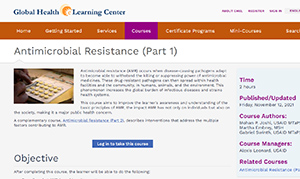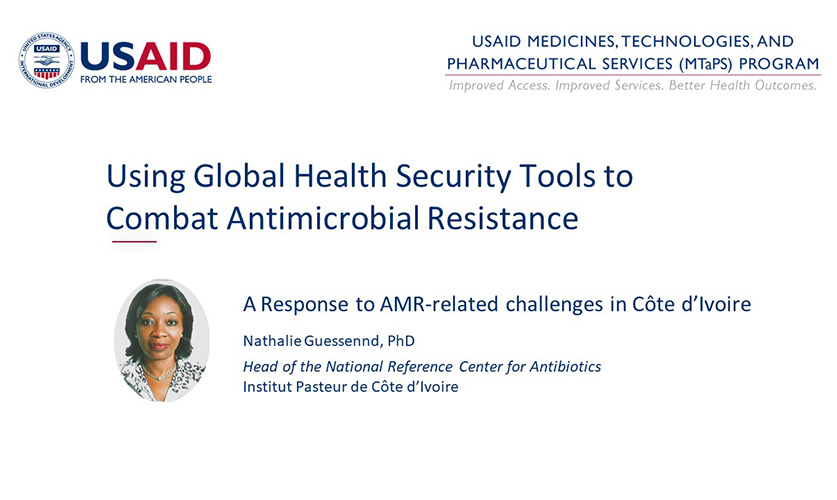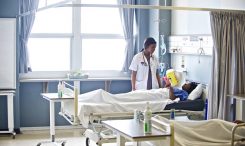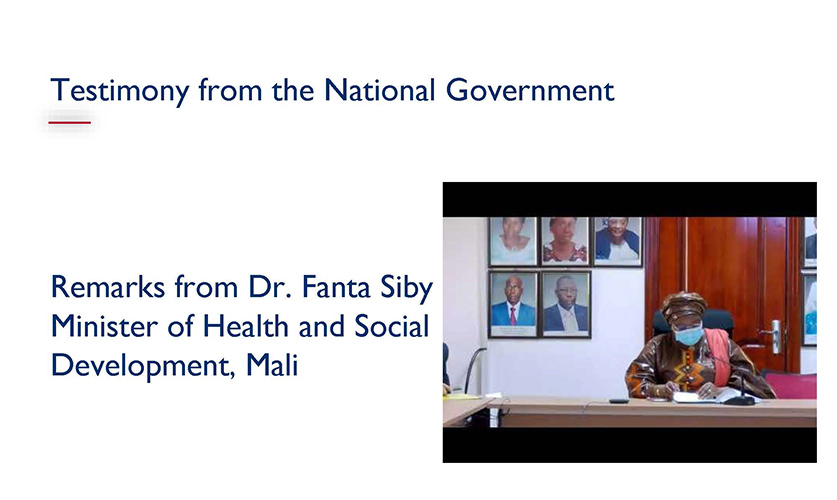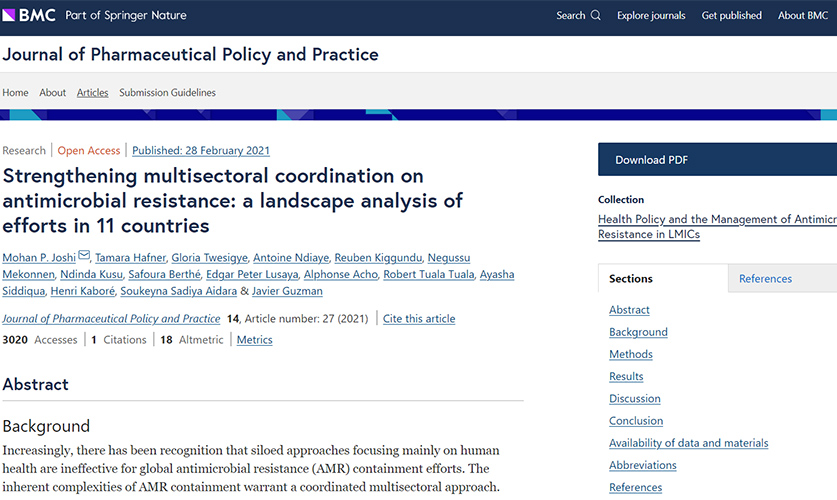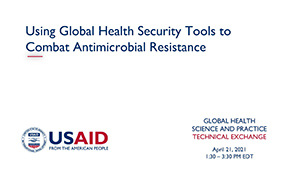The ability of medical science to successfully treat infections is in imminent danger with the growing global threat of antimicrobial resistance (AMR). The World Health Organization (WHO) has declared AMR one of the “top 10 global public health threats facing humanity.”
The USAID Medicines, Technologies, and Pharmaceutical Services (MTaPS) Program—an implementer of USAID’s Global Health Security Agenda (GHSA) goal to fight AMR—works in multiple countries to contain the rising incidence of AMR.
Read on to learn more about what we are doing, how we are doing it, and the milestones achieved in our partner countries in the global fight against AMR.
What are we doing?
More than 100 countries have developed national action plans to contain AMR as part of the Global Action Plan endorsed by WHO. However, their implementation is severely lacking, particularly in low- and middle-income countries (LMICs) with limited resources and weak technical capacities and governance structures. MTaPS assists LMICs to operationalize their national action plans for AMR containment with a focus on strengthening infection prevention and control (IPC) across the health care systems, fostering antimicrobial stewardship (AMS) to promote appropriate use of antimicrobials, and convening diverse stakeholder groups for multisectoral coordination (MSC) on containing AMR—the One Health approach that is fundamental to winning the fight.
We are working in 14 countries to identify gaps, players, and capacities and to prioritize and customize activities to help them increase their IPC and AMS capacity based on WHO’s Joint External Evaluation criteria and Benchmarks for International Health Regulations.
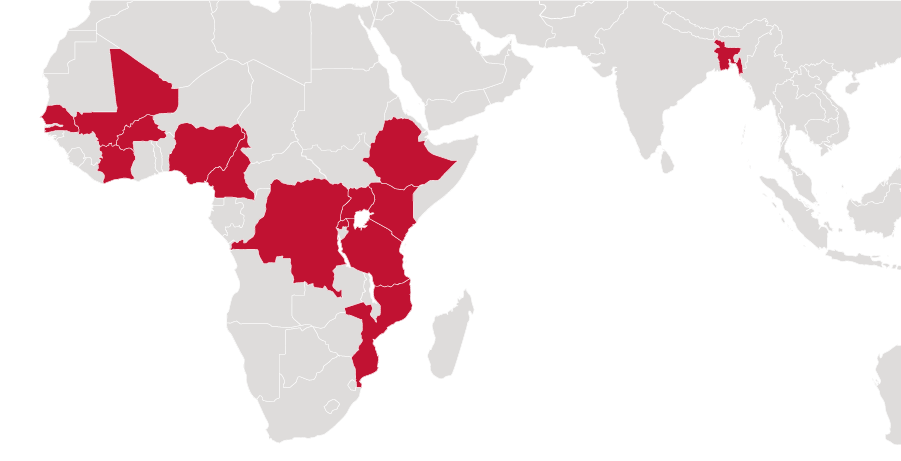
Our GHSA Countries
Bangladesh, Burkina Faso, Cameroon, Côte d’Ivoire, Democratic Republic of Congo, Ethiopia, Kenya, Mali, Mozambique, Nigeria, Rwanda, Senegal, Tanzania, Uganda

Strengthening Infection
Prevention and Control

Fostering Antimicrobial
Stewardship

Establishing Multisectoral Coordination
How are we doing it?
Below, we share some of the recent country-level highlights of our work with our partners to combat AMR.
Controlling the use of antimicrobials in the animal sector: a first in many countries
Antimicrobials are used in the agriculture sector for disease treatment and growth of livestock. Few LMICs have legislation regulating the use of antimicrobials for animals, resulting in their indiscriminate use in the animal sector.
In Burkina Faso, MTaPS supported the Ministry of Animal and Fishing Resources to combat AMR in the farming sector by developing the country’s first national guidelines on the appropriate use of antimicrobials for animals. Read the story.
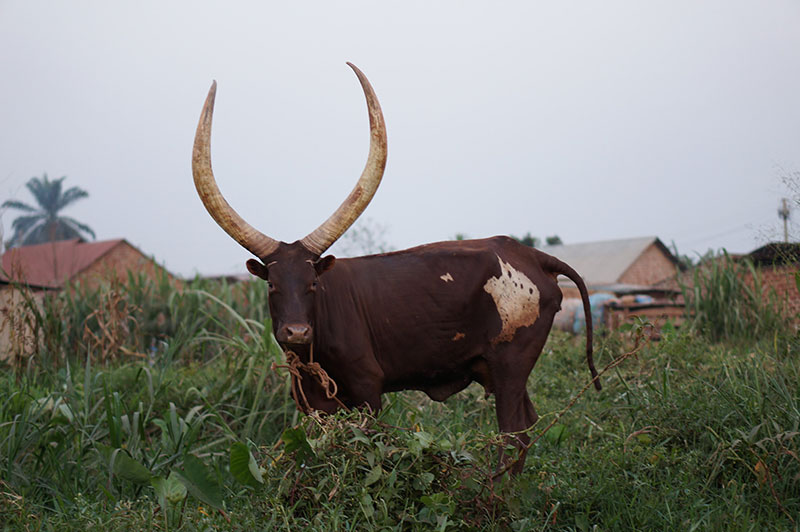

Photo credit: Tony Kidega for Health Policy Watch
In Uganda, the Ministry of Agriculture, with support from MTaPS, developed its first-ever essential veterinary medicine list for treatment of animals, as well as guidelines on infection prevention and use of antimicrobials in animals, both of which are breaking new ground in the country’s predominant agriculture sector.
Embracing the One Health approach: A milestone in Uganda
Fighting AMR requires a One Health or multisectoral approach as the health and well-being of people, animals, and plants are interconnected through their shared environment.
In June 2021, Makerere University and the Ministry of Health in Uganda published the country’s first newsletter on its fight against AMR—the “National Antimicrobial Stewardship Newsletter”. A product of effective multi-sectoral coordination—a key MTaPS focus area—the newsletter showcases the country’s One Health approach to fight against AMR. Browse the newsletter
Sustainably stepping up infection prevention and control (IPC) at health facilities
Poor IPC practices and governance at health facilities in LMICs are major problems that lead to health care-associated infections, which not only increase the need for treatment with antibiotics but also compromise the quality of care for patients.

In Cameroon, MTaPS supported national counterparts to establish, strengthen, and monitor IPC committees in 12 health facilities across the country. IPC committees are charged with implementing and monitoring IPC programs at health facilities for continuous improvement. Following this successful intervention, the Minister of Health signed a decree mandating IPC committees in each health facility in Cameroon.
In Tanzania, a newly launched eLearning course on IPC is helping strengthen the capacity of both preservice and in-service health care workers. MTaPS worked with the Center for Distance Education to reach local health-related training institutions with an IPC eLearning course, which was incorporated into the national eLearning platform for health in June 2021.
“What I got after doing the IPC e-Learning course will help me when teaching my students on IPC here at the college” – Asnath Mpelo, Nursing Tutor, Kilimanjaro Christian Medical University College”
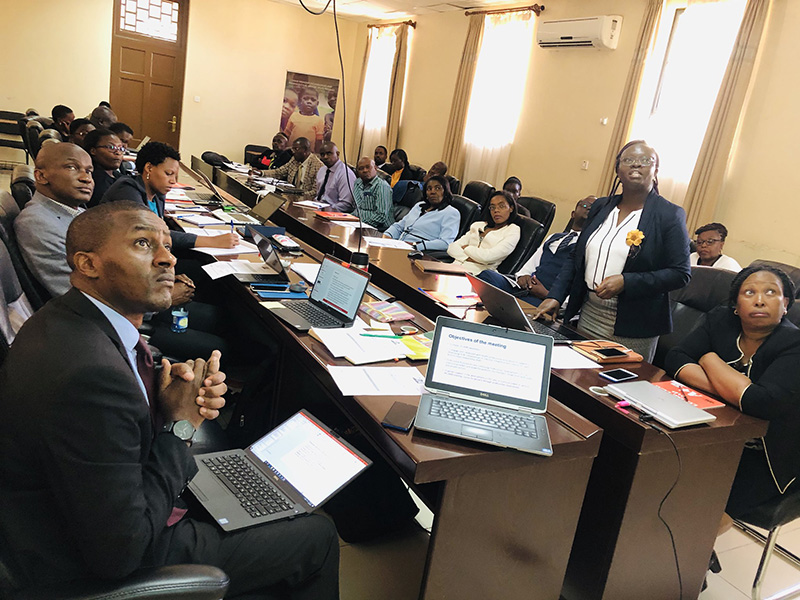
In Kenya, the approach of developing and implementing a continuous professional development course on IPC in collaboration with seven health workers’ professional associations is helping thousands of workers update their IPC skills and will continue doing so throughout their jobs. Read the story.
Fighting AMR from the ground up: Policies, regulations, guidance, and governance
The lack of an enabling regulatory framework, guidelines, and strong governance is at the root of poor practices at health facilities and weak coordination across stakeholders, which fuels the spread of AMR.
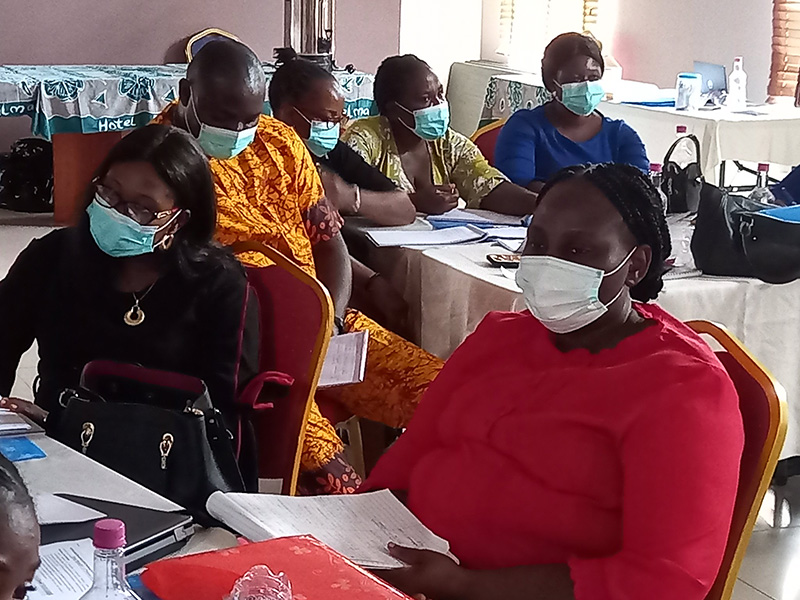
In Nigeria, the AMR Technical Working Group and its subcommittees have been revitalized with clear roles and work plans to implement AMR containment, with MTaPS’ collaboration with the Nigeria Center for Disease Control (CDC) and the National AMR Secretariat. To strengthen IPC governance in the country, a national IPC standard operating procedure was validated for use by all health facilities, and an IPC policy is being developed with participation from stakeholders, including the Ministry of Health, WHO, and CDCs from Nigeria, Africa, and the US.
In Mali, the Ministry of Health, with assistance from MTaPS, established its first-ever Drug and Therapeutics Committees (DTCs) at five sentinel health facilities—a proven way to promote sound management of medicines among health care professionals. Support, such as terms of reference for the committees and training, is strengthening the new DTCs; it also catalyzed the inclusion of a directive on establishing DTCs in the Mali National Medicine Policy, which was revised in September 2021. Read the story

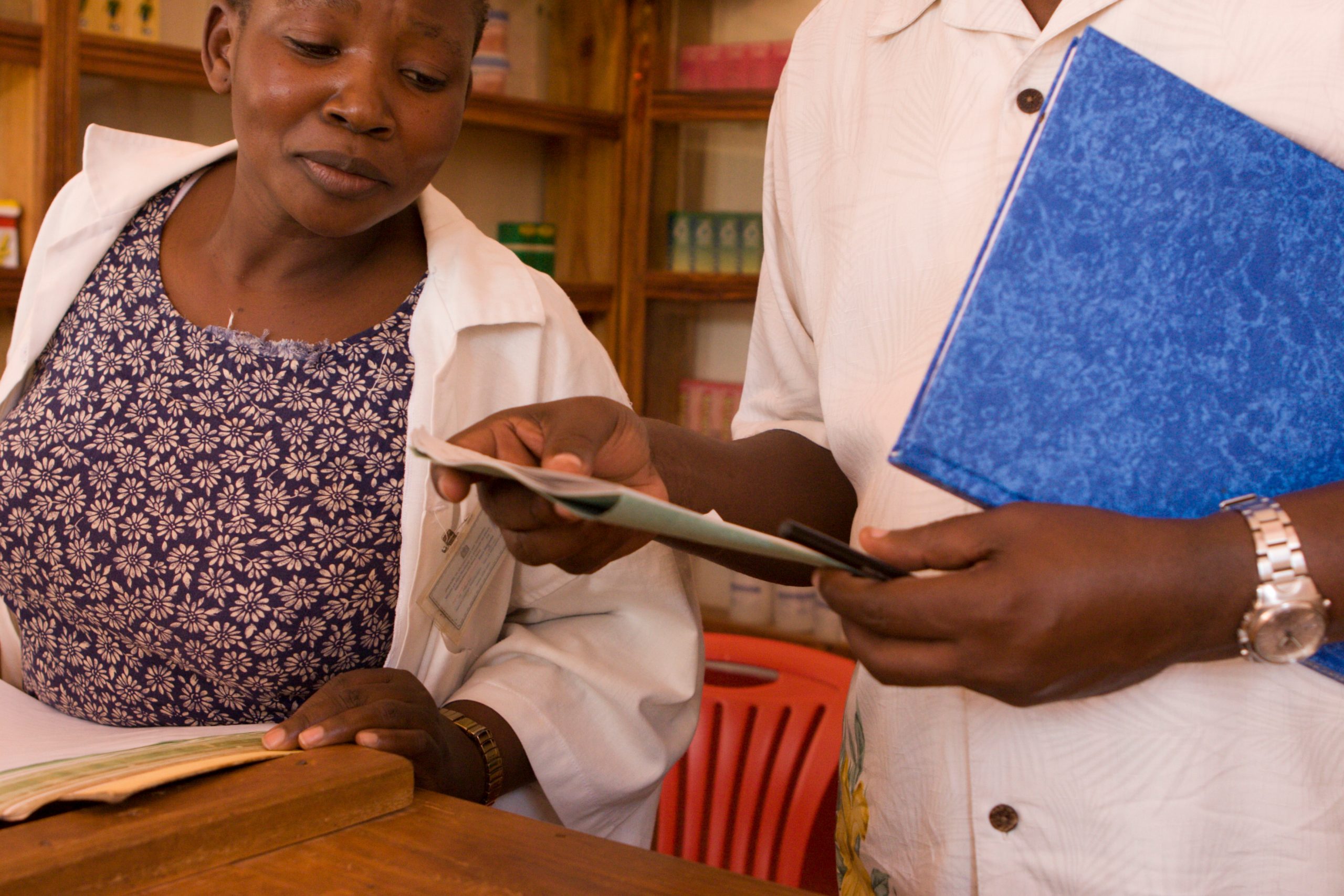
In Tanzania and Kenya, MTaPS supported the Ministries of Health to implement WHO’s AWaRe categorization of antibiotics (access, watch, and reserve)—a policy tool to aid health care providers in rational prescribing and dispensing of antibiotics that will maximize treatment benefits and reduce unnecessary or prolonged cost of treatment. Learn more
Making antimicrobial stewardship (AMS) everyone’s business
The misuse and overuse of antimicrobials in health care is a major contributor to AMR. Countries need a clear plan for AMS to improve the use of antimicrobials across health facilities, pharmacies, and communities.
In Côte d’Ivoire, MTaPS worked with the national AMR Technical Working Group to provide training to private pharmacists and representatives from private companies and civil society organizations in the animal health and agricultural sectors to implement stewardship activities.
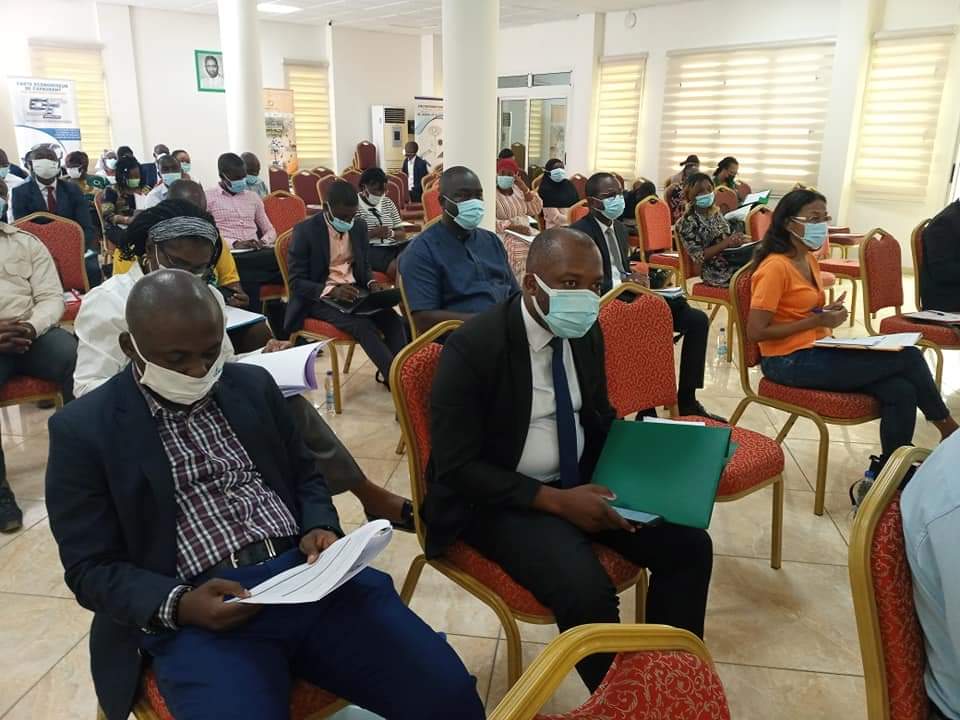
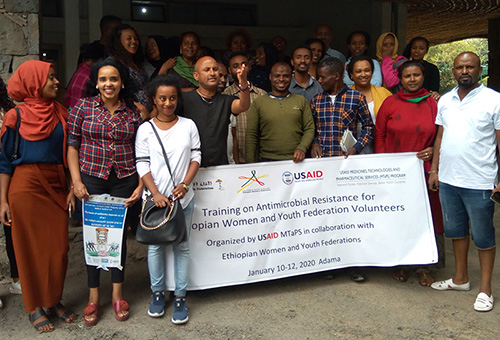
To sensitize wider segments of the population in Ethiopia, MTaPS engaged the Ethiopian Youth and Women Federation to integrate AMR messages and actions into its health-related activities in communities around maternal and child health, HIV prevention and testing, and hygiene and sanitation. Read more
USAID MTaPS Partners
Partners in countries include:
Ministries, local governing bodies, implementing partners, research institutions, civil society organizations, NGOs, professional associations, and the private sector
Partners at the global and regional level include:
WHO, UN Food and Agriculture Organization (FAO), Emergency Center for Transboundary Animal Diseases, World Organisation for Animal Health (OIE), UNICEF, US Centers for Disease Control and Prevention (CDC), Africa CDC, Fleming Fund, Wellcome Trust, UN Foundation
